by middleeastmonitor.com — A special UN-backed court has found two members of the Hezbollah militant organisation guilty for the killing of former Lebanese Prime Minister, Rafic Hariri in 2005, sentencing them to life imprisonment in absentia, after 13 years of investigations into the matter. In the Special Tribunal for Lebanon’s (STL) hearing today, its head […]
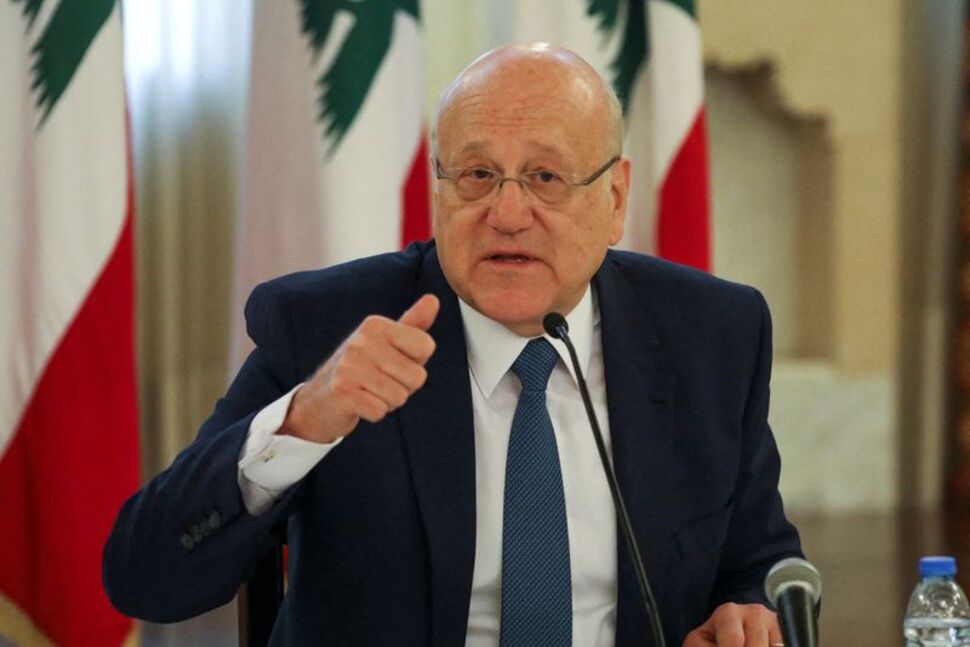
by Najia Houssari — arabnews.com — BEIRUT: Lebanese President Michel Aoun will hold binding consultations with members of the country’s recently elected parliament to name a new prime minister on June 23. Caretaker PM Najib Mikati is widely seen as the front-runner for the post. Once named, the new prime minister must form a government, a process that often takes several months. However, the incoming government will last for only four months, as its term will end with the completion of the presidential term in October. After Saad Hariri, leader of the Future Movement, declared the suspension of his political career and that of his party, political groups began looking for a Sunni figure who could be nominated to head the new government.
By convention, the prime minister of Lebanon is a Sunni Muslim. Independent Sunni MP Abdul Rahman Al-Bizri told Arab News that the nomination of a new premier is still underway and talks are taking place between various groups “to reach a formula that is relieving for Lebanon.” He said: “We are living through tough times and the traditional political forces tend to renominate the caretaker Prime Minister Najib Mikati.” A political observer said that this week might witness political deals to form the government due to “the weakness of the Sunnis in the political equation.”
A meeting on Wednesday between the Grand Mufti of Lebanon Abdullatif Darian and Saudi Ambassador to Lebanon Walid Bukhari assumed special significance as it coincided with the launch of the process to nominate the new premier. Bukhari highlighted “the important role of the grand mufti in strengthening the unity of the Lebanese and Islamic stance, especially during the hard times Lebanon is passing through.” He said that Saudi Arabia hopes to see the “unity of the people of Lebanon in front of the challenges that it is facing,” and praised the efforts of the mufti to guarantee national unity and ensure civil peace in the country.
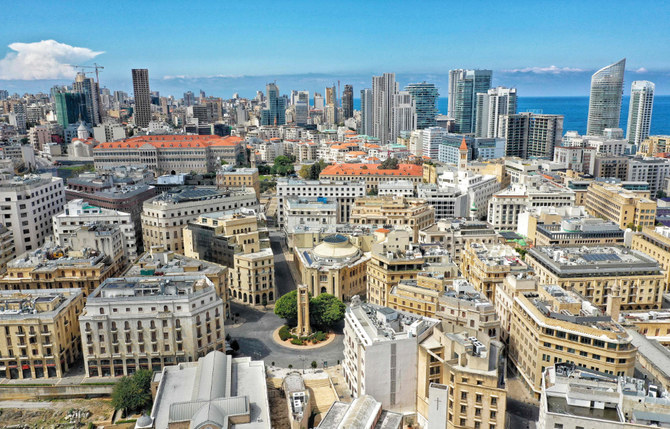
By Shivan Sarna with AP — Lebanon is anticipating hundreds of thousands of ex-pats and tourists to visit the country this summer. Their imminent arrival will bring a much-needed cash injection to a country previously tormented by an economic and financial crisis. The Mediterranean nation, known for its vibrant nightlife, beaches, mountain resorts, and cuisine, is preparing for anywhere between 10,000 to 12,000 travellers a day, according to Lebanese Minister of Tourism Walid Nassar. He adds that hotels and many guest houses are fully booked for the next three months. The country has a large diaspora who are expected to visit family this summer – despite chronic electricity cuts and political and financial instability.
Many Lebanese people have left in the past couple years after the economic crisis started. The crisis was exacerbated by the coronavirus pandemic and a massive blast at Beirut’s port in August 2020. Arabian Travel Market aims to attract European tourists to the Middle East Trek in the desert and float on the Dead Sea: Why you should visit Jordan in 2022 How are businesses preparing for the influx of travellers? Business owners are hoping to boost their hard-hit fortunes. “We believe that this year will be among the best years for the country. All of us in this sector are making big investments and we believe in the security and stability levels, and we believe that everyone will come to the country,” says Claude Taber, the owner of Rocca Marina Beach. “Everyone is coming to Lebanon because there is nothing nicer than Lebanon’s nature. Everyone knows this.”
by english.alaraby.co.uk — Lebanese President Michel Aoun will hold binding consultations with members of the recently-elected parliament to name a new prime minister on Thursday June 23, an official source told Reuters. Once named, the new prime minister must form a government, a process that often takes many months. Caretaker Prime Minister Najib Mikati is […]
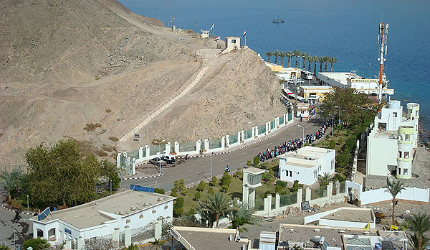
by AP — BEIRUT: Lebanon’s caretaker energy minister on Wednesday extended the licensing deadline for oil and gas companies to explore in the country’s territorial waters until mid-December, to give more firms the chance to bid, state-run news agency reported. The decision by the minister, Walid Fayad, to extend the deadline of the second round of licensing until Dec. 15 followed a request by the Lebanese Petroleum Administration, the National News Agency said.
In 2017, Lebanon approved licenses for an international consortium by France’s Total, Italy’s ENI and Russia’s Novatek to move forward with offshore oil and gas development for two of 10 blocks in the Mediterranean Sea, including one that is disputed in part with neighboring Israel. The companies did not find viable amounts of oil and gas in block number 4 north of Beirut, and drilling in block number 9 in the south has been repeatedly postponed because of the maritime border dispute with Israel.
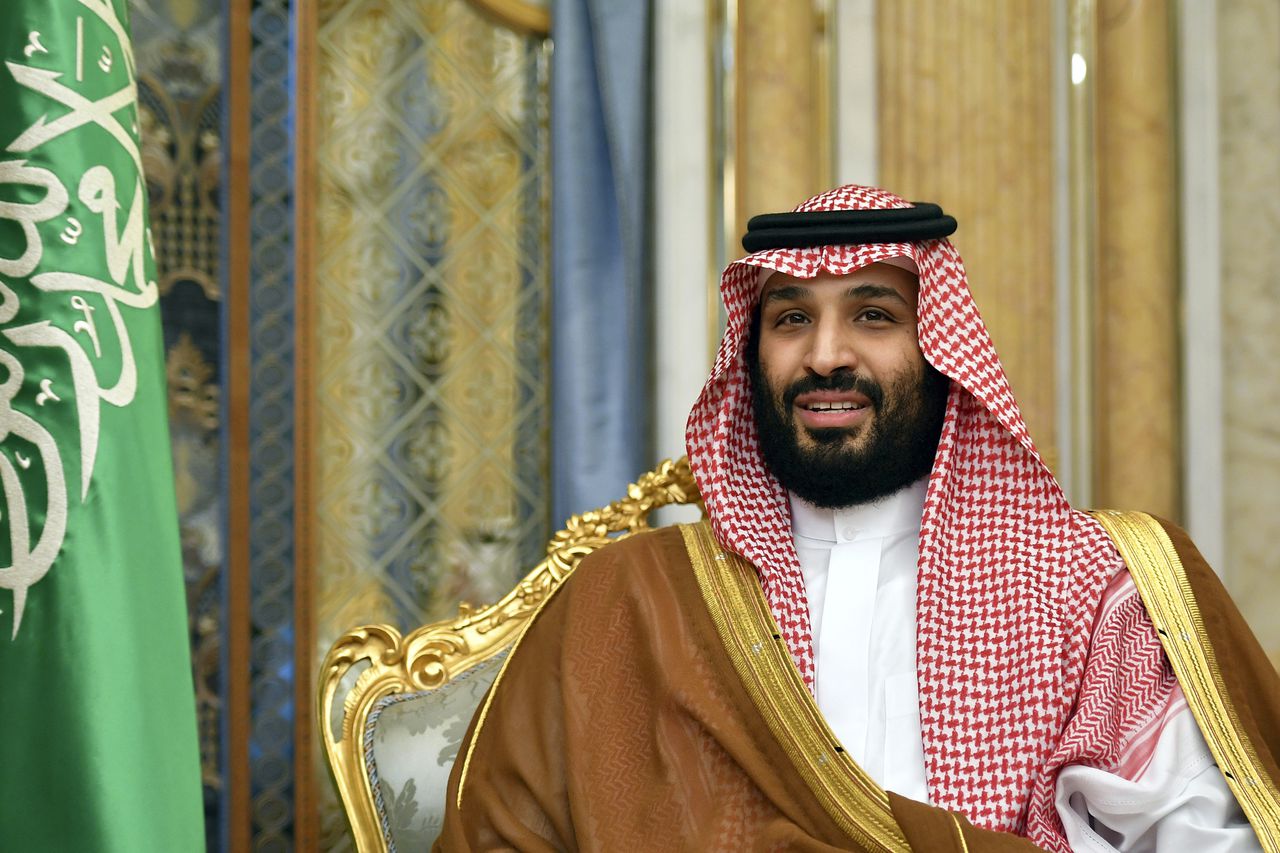
by arabnews.com — MOHAMMED ABU ZAID — Saudi Arabia announced it would deposit $5bn with the Central Bank of Egypt to support Cairo’s foreign exchange reserves, after the economy was affected by the Russian invasion of Ukraine The value of the Egyptian pound has fallen since the outbreak of the war by more than 20 percent, with the country also heavily reliant on grain exports from Ukraine
Egyptian President Abdel Fattah El-Sisi has praised Saudi Arabia and the UAE for their financial assistance in response to the outbreak of the war in Ukraine. Speaking to the media at the inauguration of a series of dairy production facilities and slaughterhouses in Sadat City, in response to a question about the support provided by the Kingdom and the UAE, the president said that the two Gulf states “moved together” without a request from Cairo. In March, Saudi Arabia announced it would deposit $5 billion with the Central Bank of Egypt to contribute to supporting Cairo’s foreign exchange reserves, after the Egyptian economy was affected by the Russian invasion.
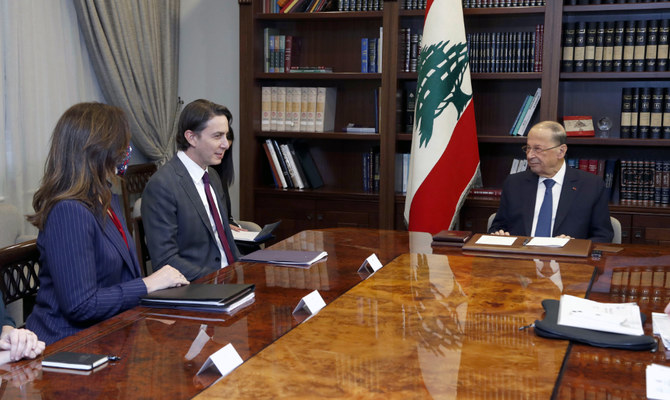
by AFP — BEIRUT: Lebanon Tuesday made a new offer to a visiting US mediator over a maritime border deal with Israel, holding back on demands for territory where Israel plans to imminently extract gas, an official said. Beirut’s proposal however included a claim for all of a separate field that it had initially only sought part of, the official close to the negotiations said. The new offer was made during meetings between Lebanon’s top leaders and US envoy Amos Hochstein, who landed in Beirut on Monday to relaunch indirect negotiations between Lebanon and Israel after a year-long pause. Lebanese authorities last week had requested Hochstein visit after a gas production vessel arrived in Israel to launch extraction operations in the Karish offshore field, drawing condemnation from Lebanon, which had laid claim to parts of it.
But in meetings Tuesday with Hochstein, Lebanon’s top leaders pushed for the country’s maritime border to exclude Karish and include the whole of the nearby Qana field instead, the official close to the negotiations told AFP. “We want the entire Qana field,” the official said on condition of anonymity because he was not authorized to speak on the issue. Lebanon had initially demanded 860 square kilometers (330 square miles) of territory in the disputed maritime area, including part of Qana. It then asked for an additional 1,430 square kilometers, also taking in part of Karish.
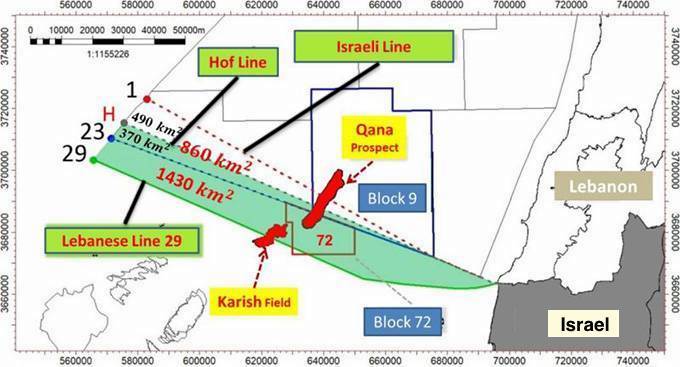
BEIRUT, by Laila Bassam and Maya Gebeily; (Reuters) – Lebanon is preparing to offer a compromise to U.S. energy envoy Amos Hochstein to resolve a dispute with Israel over maritime gas resources, three Lebanese officials with knowledge of the negotiations told Reuters. Hochstein landed in Beirut on Monday at the invitation of the Lebanese government, which had objected to the arrival of a vessel operated by London-based Energean (ENOG.L) off the Mediterranean coast on June 5 to develop a gas field known as Karish. Israel says Karish is part of its exclusive economic zone, but Lebanon says the field is in contested waters and should not be developed until the two countries conclude their indirect talks to delineate their maritime borders. Those talks fizzled out last year after Lebanon pushed its claim in the disputed zone from a boundary known as “Line 23” further south to “Line 29,” adding around 1,400 square km (540 square miles) to its claim, including part of Karish.
To overcome the impasse, Hochstein proposed a field-swap that would create an S-shaped boundary instead of a straight line, but Lebanon did not officially agree to the proposal, official sources said. Lebanon has insisted on renewing the indirect talks, but has not yet publicly announced whether it would stick to Line 29 as a starting position for those negotiations. The U.S. consider Line 29 a “non-starter,” according to sources. Three Lebanese officials with knowledge of the internal process to finalise a government stance said that Lebanon would drop claims to Line 29.
The sources said President Michel Aoun would meet Hochstein on Tuesday morning and propose “Line 23, plus a little more.” One of the officials specified that Aoun’s position would be a claim to Line 23 in addition to 300 km sq that includes the Qana field, but not Karish. Aoun would demand that indirect talks resume as soon as possible and that Israel stop all works at Karish until negotiations are concluded, two of the officials said.
by AFP — The UN’s mission in Lebanon called Sunday for the country’s military to guarantee the security of its peacekeepers, alleging personnel were “threatened” by armed men the day before. The United Nations Interim Force in Lebanon (UNIFIL) has long been deployed in the country’s south — a stronghold of the powerful Shia movement […]
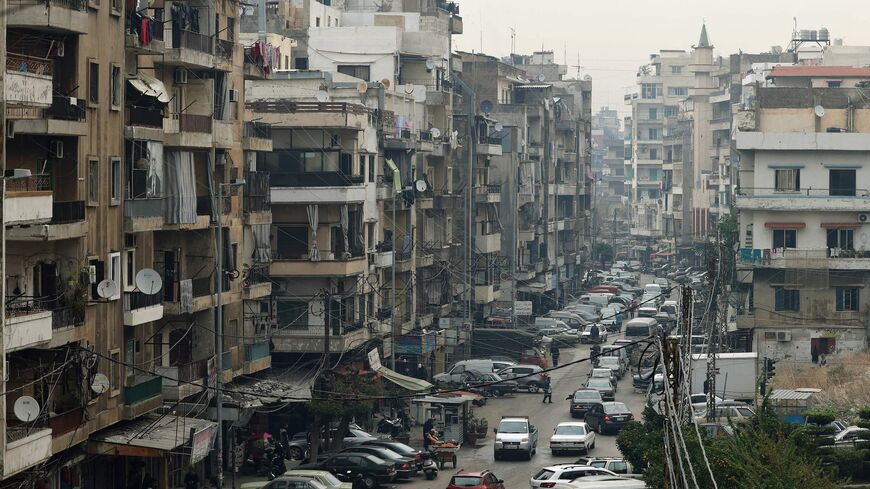
By Rodayna Raydan — al-monitor — Lebanon’s worsening water crisis is placing households and businesses under stress. The country is known for abundant water resources but without implementation of strategies to conserve and protect them, it remains one of the most water-threatened nations on earth. Clean water in Lebanon is simply no longer affordable and households are trying to use as little as possible. Amid water shortages in most of the country, residents are paying a large portion of their income to private companies to fill the tanks on their roofs. “If I didn’t pay for water from private companies, my taps would run dry,” Beirut resident Nada Kanso told Al-Monitor.
Environmental groups blame the government’s policies for Lebanon’s water crisis, saying the lack of adequate water infrastructure and mismanagement have brought the situation to a critical point. “The situation has become unbearable as residents are having to pay over a million Lebanese pounds weekly to fill up their water tanks, while the minimum wage is 675,000 Lebanese pounds,” said Yousef Shwai, a private water distributor in one village in Beqaa. One million Lebanese pounds are equivalent to $35 at the black market rate.
Last summer UNICEF warned, “Unless urgent action is taken, more than four million people across Lebanon — predominantly vulnerable children and families — face the prospect of critical water shortages or being completely cut off from safe water supply in the coming days.” The cash-strapped government has not invested in keeping water supplies safe and secured, according to a report from The World Bank. Environmental consultant and engineer Tamara Ghanem told Al-Monitor, “Lebanon’s tap water is extremely toxic, to the extent that you can’t even drink it.”
The Beirut and Mount Lebanon Water Corporation, a service organization that provides water for about half of Lebanon, recently announced the start of severe water rationing. Al-Monitor spoke to a source within the corporation who wished to remain unnamed. He said, “The emerging water crisis is expected to escalate if no adequate solutions are found, especially for the electricity [shortage], which is one of the main interruptions to the supply of water.” According to the source, the devaluation of the Lebanese pound also prevents the water supply networks from being maintained as the water service organizations can no longer afford the imported parts that are essential for maintenance.



